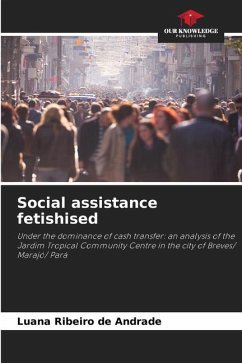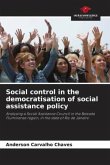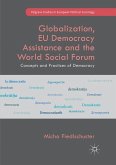The general aim of the present book is to analyse the historical process that led Brazilian social security to compose new trends in the 1990's, which include the privatization process of social security and health and the advocacy for the expansion of social assistance in dealing with the expressions of the "social issue", and, how, as a result of this process, social assistance came to be ideologically taken as a social fetish as it became a legitimising instrument of the state at the turn of the 21st century, mainly through conditional cash transfer programmes such as the Bolsa Família Programme (BFP).
Bitte wählen Sie Ihr Anliegen aus.
Rechnungen
Retourenschein anfordern
Bestellstatus
Storno








